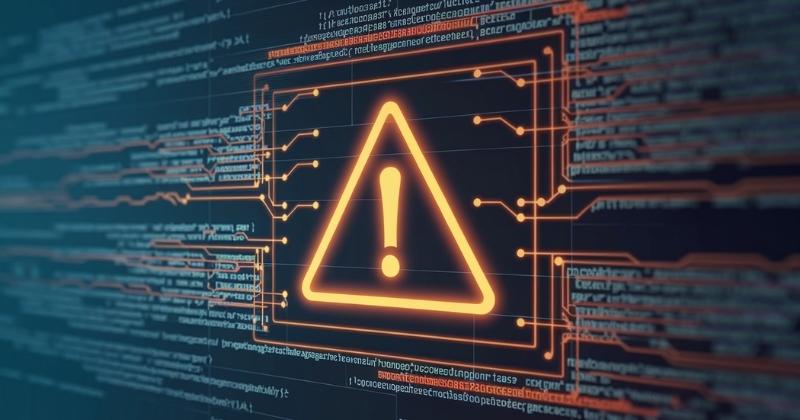
Two first-year computer science students at Stellenbosch University have been actively searching for vulnerabilities in both governmental and private-sector systems, utilising publicly available internet resources such as the backends of various government portals, in a completely legal manner. Upon identifying any vulnerabilities, the students promptly notify the relevant institutions, typically allowing ample time to rectify the issues before any public disclosure. They refrain from exploiting these vulnerabilities for personal gain.
Key Takeaways
- Systemic Vulnerabilities Uncovered: Two first-year computer science students at Stellenbosch University have identified significant vulnerabilities in SASSA’s Social Relief of Distress (SRD) grant system, revealing that these security flaws are not just occasional bugs but indicative of deeper systemic issues that enable potential widespread fraud.
- Alarming Rates of Fraudulent Applications: The investigation led to the shocking discovery that a disproportionately high number of grant applications were submitted for specific demographics, such as individuals born in February 2005 and young adults born between 2002 and 2006. This suggests orchestrated fraud, possibly facilitated by insiders or through advanced hacking, underscoring the need for immediate and comprehensive security enhancements.
- Need for Overhaul and Transparency: The situation calls for a fundamental overhaul of the SRD grant system and increased transparency from SASSA. Recommendations include re-verifying all grant applications, redesigning the system to enhance security measures, and conducting a thorough inquiry into the development and maintenance of the system to ensure accountability and prevent future abuses.

Alarming System Flaws Exposed
However, occasionally, a system flaw is so severe that it highlights significant fraud or gross incompetence, compelling the students to immediately disclose their findings publicly. Such was the case with SASSA’s Social Relief of Distress (SRD) grant system.
In their efforts to expose vulnerabilities, the students encountered significant challenges in communicating with SASSA, as many listed contact numbers were either non-existent or perpetually unanswered. This disarray within SASSA’s communication channels suggests a deeper systemic issue, potentially indicating neglect or oversight at various administrative levels. The unresponsiveness raises alarming questions about accountability and governance within SASSA, underscoring an urgent need for a comprehensive review and restructuring.
Millions are recipients of the SRD grant, yet numerous applicants are rejected. Currently set at R370 per month, this grant is considered a potential precursor to a basic income grant.
During their investigation, the students accessed SASSA’s public portal using 300,000 ID numbers from February 2005, querying at a rate of 700 per minute—a feat that should have been restricted by a secure system.
The process of submitting banking details to SASSA has become a focal point for fraud prevention. By securing this procedure, SASSA can significantly reduce identity theft and unauthorized withdrawals, ensuring that grants reach the right recipients safely and efficiently.
Shocking Findings Unveiled
This initial concern was overshadowed by the discovery that 74,931 SRD grant applications were made for individuals born in February 2005, a suspiciously high figure given the 82,097 births recorded that month by Statistics South Africa as of 2020.
Further analysis of 1,000 IDs from individuals born on 1 January between 1960 and 2006 revealed an average application rate of 52%, which alarmingly rose to approximately 90% for those born between 2002 and 2006, indicating potential widespread fraud. The statistics reveal a disturbing trend of manipulated vulnerabilities within the system, pointing to a systematic exploitation that goes beyond random chance.
The statistics reveal a disturbing trend of manipulated vulnerabilities within the system, pointing to a systematic exploitation that goes beyond random chance. Such high application rates for specific cohorts hint at possible automated systems or orchestrated efforts manipulating the application process, casting a shadow over the integrity of the grant allocation.
These findings were complemented by a campus survey involving 60 acquaintances, 58 of whom had active SRD grant applications in their names on SASSA’s system—56 of these without their actual application, pointing to fraudulent activity.
This pattern suggests a coordinated fraud scheme, potentially involving inside collusion or highly sophisticated hacking techniques. The presence of such schemes within a government assistance program not only undermines the system but also robs deserving individuals of necessary aid, exacerbating social inequalities.
Regularly checking your SASSA balance can help beneficiaries stay informed about their accounts and spot irregularities early, a crucial step in combating fraudulent deductions and ensuring rightful payments.

Calls for System Overhaul and Transparency
These revelations suggest a deliberate exploitation of SASSA’s inadequate IT infrastructure, raising questions about the integrity of its implementation and the delayed response to such glaring issues.
Following a public announcement of these findings on Heart FM, Brenton van Vrede, head of grant operations at SASSA, acknowledged the prevalence of fraud, advising victims of fraudulent applications to undergo biometric verification—a process seen by the students as impractical and burdensome for the public.
The students argue that the entire SASSA SRD system requires a fundamental overhaul, recommending a comprehensive re-verification of all grant applications and an urgent redesign of the system to prevent rapid successive applications and large-scale fraud.
SASSA’s commitment to stringent verification measures contradicts the intended accessibility of the SRD grant, suggesting that simpler verification methods, like those used by banks, might be more appropriate.
Tip: For individuals affected by similar fraudulent claims, it’s advisable to regularly check their eligibility and application status through official channels, ensuring their personal information has not been compromised.
The need for a full disclosure of the events, a thorough inquiry into the system’s development, cost, maintenance, security measures, and identification of those responsible for the fraud is paramount, as suggested by the students.
To protect yourself from fraudsters, always ensure that your personal details are verified through the SASSA ID Verification Link Online system. This simple step can safeguard your grant from being stolen.
Conclusion
The findings by the Stellenbosch University students shed light on alarming vulnerabilities within SASSA’s SRD grant system, exposing both deep-seated fraud and systemic inefficiencies. These revelations underscore the urgent need for comprehensive system overhauls and increased transparency from SASSA. By addressing these critical issues, it is essential to ensure that assistance reaches those who genuinely need it, safeguarding the system against exploitation. This case highlights the importance of vigilance and proactive measures in digital security to protect public resources and maintain trust in governmental assistance programs.
Fast, uncomplicated, and trustworthy loan comparisons
At Arcadia Finance, you can compare loan offers from multiple lenders with no obligation and free of charge. Get a clear overview of your options and choose the best deal for you.
Fill out our form today to easily compare interest rates from 19 banks and find the right loan for you.



